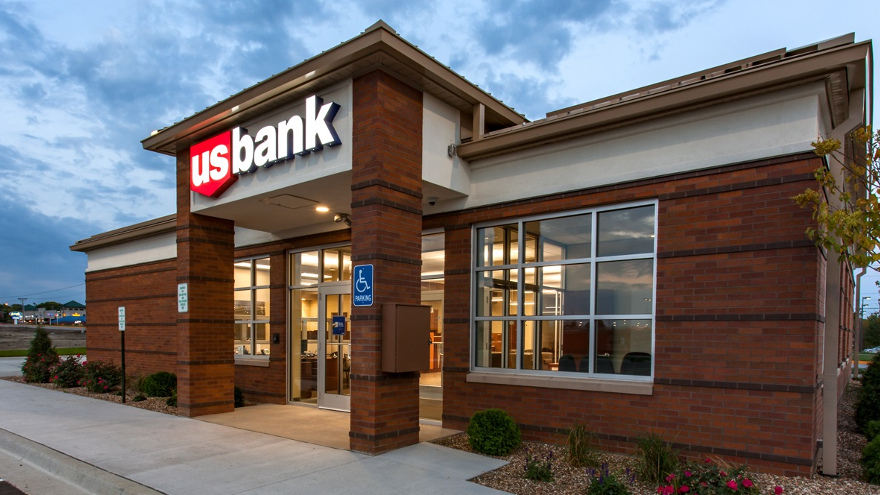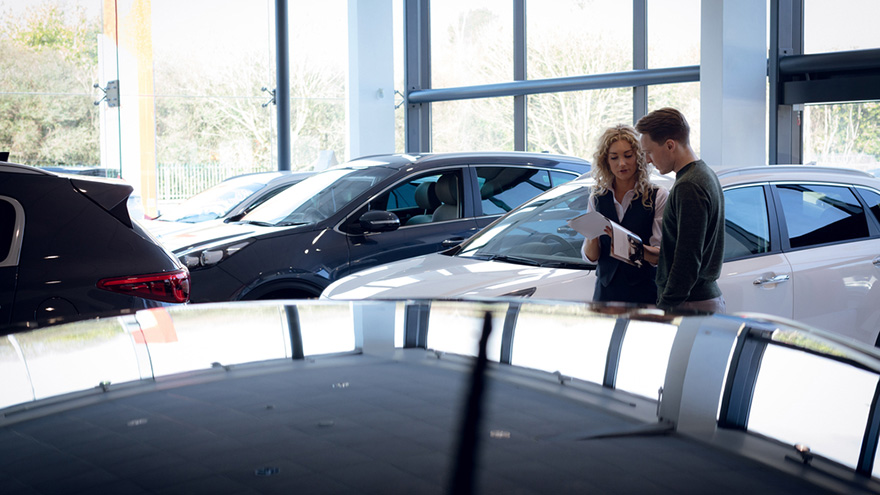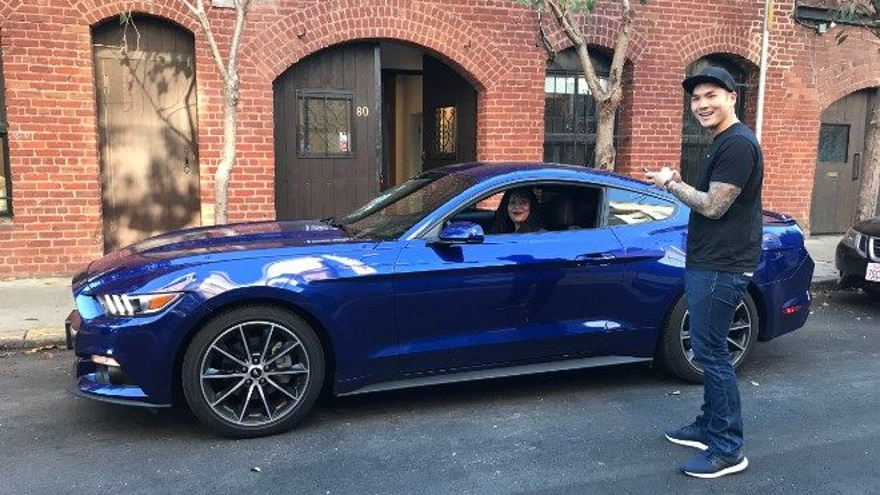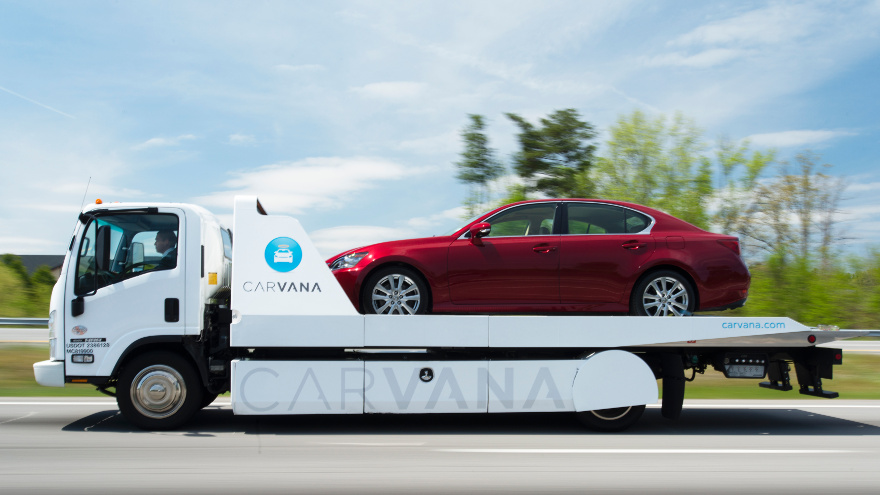Dominion Dealer Solutions introduced its new cloud-based CRM — Dominion Vision — on Monday.
This follows the company's January release of its new DMS, Dominion VUE, which is hosted in the Microsoft Azure Cloud.
Dominion Vision is powered by CRMSuite and features both customized reporting and consumer-focused communication tools including a virtual, personal assistant, “Olivia.”
“There are many CRMs in the marketplace, but Dominion Vision is truly different. From our rich CRM legacy with AVV and Autobase, Dominion has always been committed to the dealer — using the latest technology to build simple and elegant solutions,” Dominion Dealer Solutions president Jack Ross said in a news release. “Now all of our tools, from DMS to CRM, equity mining to digital products, can work together to help car dealers sell more cars.”
By learning about customers and their preferences, Dominion Vision helps sales reps and management connect with prospects using the best possible method at the best possible time, the company said.
Dominion Vision’s virtual, personal assistant, “Olivia", is designed using machine learning to track consumer communications preferences.
This feature scans the customer database on a regular basis and communicates with prospects who have not been contacted via email, text or voicemail. Responses from customers are forwarded to the salesperson to re-initiate sales and service communication.
Additionally, Dominion Vision is available via both a tablet-friendly interface and a downloadable mobile app.
U.S. Bank is now is leveraging the same technology from AutoGravity being deployed by an array of captives.
U.S. Bank recently launched a digital offering on its website that allows consumers to shop for a new vehicle and get pre-approved for financing, all before actually stepping foot in a dealership.
U.S. Bank’s digital financing platform is currently available via the U.S. Bank website for those individuals looking to buy a new vehicle through dealerships served by U.S. Bank. It will expand to the bank’s mobile app and be available to used-vehicle buyers and co-applicants in the coming months.
Working with AutoGravity, U.S Bank created a new platform on USBank.com that can provide a simplified, streamlined loan application process for users that typically takes just minutes to receive an approval decision.
Potential buyers using the new U.S. Bank tool simply:
1. Pick their car and select a dealership online.
2. Apply for a pre-approval for U.S. Bank auto financing online.
3. Close the vehicle installment contract at the dealership, and drive off in their new car.
“We want our customers — both car buyers and dealerships — to have the best, most seamless experience possible,” said John Hyatt, executive vice president of consumer dealer services for U.S. Bank. “This technology helps us get the buyer in the driver’s seat sooner and brings pre-approved customers to the dealership.”
Besides saving consumers time, the new technology improves customers’ overall car-buying experience by providing them with pre-approved loan terms going into the dealership.
“Together, AutoGravity and U.S. Bank have taken the first step on a journey to revolutionize the digital car-buying experience, empowering U.S. Bank’s customers to finance their next car in minutes, anytime and anywhere they want,” said Andy Hinrichs, founder and chief executive officer of AutoGravity.
Darwin Automotive introduced Tuesday an exclusive Darwin Online algorithm for automotive parts solution RevolutionParts that is designed to give auto dealers a competitive edge in eommerce auto part sales.
The newly developed algorithm uses a vehicle’s VIN to find three top accessories that can be presented to consumers at checkout.
This process closely reflects that of Amazon’s when a customer checks out online, said Darwin Automotive chief executive officer Phillip Battista.
“Just like Amazon we say, ‘Hey, customers like you also bought these three things.’ It’s a highly successful form of suggestive selling,” Battista explained in a news release. “For years dealers have lamented that the accessory business is a huge hole in their world — something they cannot really take advantage of. Well now they can.”
Darwin Online interfaces with more than 142 individual product providers, according to the company.
In addition to allowing dealerships to control their profitability and disclosure, the platform provides accurate payments that match the dealership’s DMS and interacts with all dealership websites without any need for DMS integration.
“Aftermarket accessories is a huge market and most new vehicle owners will purchase accessories within 45 days. The problem is, they purchase from someone other than the selling dealer. To be successful, in the past dealers almost needed a separate accessories department and salesperson,” added Battista.
“With Darwin Online we can show that every car dealership can be its own accessories superstore without a huge effort. They have these quality factory parts in stock and just need to inform their customers at the point of purchase. For example, Darwin Online takes that new 2018 Ford Explorer purchaser and shows them that the top three suggested accessories are all-weather floor mats, running boards and a luggage rack. We suggest the best OEM parts for that customer and our dealers are seeing an incredible boost in their accessory sales,” he explained.
Using a combination of algorithms, in real-time, Darwin analyzes customers’ answers to a set of needs-discovery questions, deal information, previous ownership history and other details stored in the dealership’s DMS.
Additionally, Darwin also produces a Driver’s Needs Analysis, through predictive analytics, that scores F&I products based on the buyer’s need and the likelihood the customer will purchase those protections.
The provider of a unique marketing solution that creates personalized direct mail using real-time consumer activity — PebblePost — recently announced that it has appointed new vice president Richard Flynn to grow its automotive vertical.
In an environment where the digital age has changed how consumers are often marketed to, the company aims to combine the power of connecting online with that of direct mail through its Programmatic Direct Mail solution.
Flynn brings over 20 years of experience with the auto ad business and has held previous positions at both AOL and Sports Illustrated.
“Rich is a master at understanding the customer and their business,” Pebble Post chief growth officer Geoff Dodge said in a news release announcing Flynn’s hire in January.
“His depth of knowledge of the auto vertical — having worked with Ford, Chrysler and General Motors, to name a few — is invaluable as he builds our go-to-market strategy for these marketers hungry for innovation,” he continued.
In a crowded media landscape like we see today, Flynn believes that Programmatic Direct Mail can be a changemaker for automotive business looking to reach consumers and move more metal.
He says that direct mail marketing allows dealers to pursue consumers in a way that will rise above the noise they often receive online.
Effective frequency
Now that traditional channels are not as large or arguably as effective as they used to be, Flynn suggests that when it comes to marketing on the dealer side of the auto industry a lot of noise locally can turn off consumers.
“Frequency is always a concern for dealers. How do you weigh too much versus too little in today’s marketing mix?” Flynn told Auto Remarketing by email earlier this this month.
“The challenge is heightened when you consider how many messages are out there already, every day, from search and social to display retargeting and traditional methods like direct mail. Consumers have developed an ad blocker muscle that can’t be ignored, so it’s important for dealers to remember that more isn’t always better if it leads to noise that’s easily tuned out,” he continued.
In addition to being designed to pick up on dealer website visitors and recognize whether or not an individual is an existing customer or prospect, Flynn says that PebblePost’s patent-pending digital platform provides dealers an option to connect with customers and leads that is relevant, personal and respectful.
The solution blends segmentation, campaign management, production, analytics and optimization. Its tools include: Campaign Management, Address Graph, Dynamic Production, Real-Time Analytics and Continuous Optimization and Intent Data Capture, which picks up real-time visitor signals, such as page visits, keyword searches, cart abandonment and behavioral activity.
“PebblePost’s Programmatic Direct Mail platform offers dealers a relevant, personal, and respectful way to communicate with existing customers — come back to the lot for service, e.g. — and most intriguing, connect with new prospects,” said Flynn.
“The latter are potential customers already visiting the dealer’s website — driven there by some call-to-action — but the dealer doesn’t know who they are. Our Website Prospect Remarketing solution picks up on that signal. We recognize that someone is not a customer, but a prospect. Then we leverage our proprietary technology to create connections between an individual visiting a website via a cookie and where to send the mail and find their postal address,” he continued.
To inform dealers where to send the mail and find car shoppers’ postal addresses, the Address Graph tool determines the most accurate USPS-verified postal address for a segmented customer.
“You have this tangible reminder in the prospect’s home urging them to visit the lot,” Flynn explained.“That impression doesn’t disappear like a display ad — it picks up more eyeballs in the home as that purchase is discussed. If you think of the enormous pressure on dealers to create new business, Programmatic Direct Mail can be a real game-changer for their bottom line.”
ELEAD1ONE introduced on Monday its DealBuilder online car-buying application that enables salespeople to be completely mobile while guiding customers through the car-buying process.
The new app can be used in-store with DealerBuilder Showroom, or on a dealer’s website with DealBuilder Online to show inventory, confirm quotes, communicate with managers, fill out credit apps and scan driver’s licenses before test drives.
ELEAD1ONE said DealerBuilder is both designed to keep dealerships central to the online car-buying process and fully integrated into ELEAD1ONE CRM to be used on a desktop, mobile tablet or smartphone.
Because Showroom and Online versions are synchronized, a customer can start a deal online, save it, and then come into a store to complete or finalize from home.
The CRM integration also allows salespeople to utilize the app to access metrics, view appointments, complete tasks, add notes and manage customer contacts.
“Our vision for the future of digital retailing keeps dealerships central to the online car-buying process, unlike third-party solutions that plan to sell partially completed deals as leads to auto dealers,” ELEAD1ONE partner Bill Wittenmyer said in a news release. “Although DealBuilder can be used to complete the entire purchase process online, in the near term we think most customers will start their deals online and come into the dealership for test drives and to sign papers.”
Lexus of Wesley Chapel in Wesley Chapel, Fla., which has been testing DealBuilder Showroom for two months, has 21 salespeople using the app on iPads.
“No matter where the salespeople are on the property they never have to leave the customers’ side. The app shows our customers that we respect their time, and the salespeople love it,” said Lexus of Wesley Chapel’s director of strategy Jordan Johnson. “DealBuilder empowers our salespeople to do more and is simply the intelligent way to do business in 2018.”
While on a dealership’s website, when viewing inventory, a customer is provided the option to “Build Your Own Deal” or “Buy Now.” And they can save vehicles into a “Virtual Lot” or use the app to view side-by-side comparisons.
For a trade-in evaluation, customers can upload vehicle photos and fill out a detailed damage report. When a deal is created online or a customer has questions there are custom notifications that alert salespeople and managers.
A built-in chat application that connects the customer with a salesperson can be used for both price negotiation and to guide customers through the process, according to ELEAD1ONE.
With DealBuilder Showroom, dealerships can use a built-in VIN scan to scan the customer’s VIN and fill out a damage report. Customers can compare payments, change terms and add aftermarket products via the app’s built-in desking tool, the company said.
Just like that four-cylinder engine in a 2017 model is probably much more efficient and robust than the same level power plant in a vehicle 10 years older, Asbury Automotive Group is anticipating an ongoing software upgrade will rev up its used-vehicle department to a much higher performance than what the dealer group experienced to close the fourth quarter.
Acknowledging the software changeover had an noticeable impact, Asbury reported that its Q4 same-store used-vehicle retail revenue decreased 6 percent year-over-year while gross margin dropped by 10 percent on the same time comparison.
In terms of units, Asbury retailed 17,822 used vehicles during the fourth quarter, a drop-off of 2,059 vehicles or 10 percent year-over-year.
For the year, Asbury retailed 76,929 used vehicles, down 3 percent or 2,330 units compared to the 2016 total. The dealer group’s average gross profit per used unit retailed dipped 5 percent or $79 in 2017 to $1,574.
While those might be some negative figures, Asbury leadership is hopeful a dramatic software upgrade — expected to be completed by the close of the second quarter of this year — will provide the lift the company needs to enjoy record used-vehicle performance.
Asbury senior vice president of operations John Hartman told investment analysts during a February conference call, “While the new software will benefit us in the long-term, the implementation led to business disruption, putting pressure on our used sales.”
Later in the call, Hartman elaborated about some of the software’s capabilities.
“The biggest difference is we track market-day supply on used,” Hartman said. “Now if we look at a vehicle, if it has a low market-day supply, we know that vehicle will turn quicker and we can price it appropriately versus a vehicle that has a high market day supply and there's abundance of them in the market. We need to price that more aggressively to move it quicker. So the data is much more fine-tuned.”
Asbury president and chief executive officer David Hult immediately chimed in saying, “The other significant increase I’ll add to that, from appraising the vehicle, it’s more real time data, meaning today and this week what’s happening and the old software was really a 90-day look back.”
While Hult didn’t specify exactly how old Asbury’s software, it might be fair to assess that the platform might have been limited like that four-cylinder engine only pushing out a little more than 100 horsepower.
“We’re not a huge a company, but anytime you change something across the enterprise, it’s painful, so you put it off for long periods of time,” Hult said.
“The software we had was serviceable, but the data that it gave us wasn’t as timely as what the new software gives us,” he continued. “The new software is far more complex and more data-driven than the old, so we’re confident once we get comfortable with it, we’ll really be able to increase our turn, which is what we’re focused on. We want to turn the inventory faster and naturally grow our volume through trades.”
Top-line measurements
In other parts of its financial statement, Asbury reported its Q4 net income came in at $42.5 million or $2.03 per diluted share, down compared to $67.1 million or $3.08 per diluted share in the prior-year quarter.
The company explained its net income for the fourth quarter was adjusted for a $5.1 million pre-tax loss for franchise rights impairments ($0.15 per diluted share) and a $7.9 million benefit ($0.37 per diluted share) related to adjustments to deferred tax balances as a result of recent changes to the tax law.
As a result of recent changes to the tax law, Asbury is expecting its effective tax rate to be between 25 percent and 26 percent in 2018, which is down from its prior guidance of approximately 38 percent.
Finance office update
Asbury’s F&I performance was a bright spot during the fourth quarter. The dealer group posted a year-over-year lift of 10 percent or $153 in F&I gross profit per unit, landing at $1,652.
And by and large, Hult indicated that Asbury has the access to get its customers financed.
“I haven’t seen a big shift in the credit at all, as far as in the subprime market, which is a small percent of our business. The stipulations are getting a little bit tighter, but credit availability hasn’t been an issue in all the tranches,” he said.
The Blue Oval’s captive is pleased with how its subsidiary is performing while making inroads to serve consumers who want an alternative to securing a vehicle without the commitment of a retail installment contract or leasing agreement.
Executives from Canvas — the Ford Motor Credit subsidiary offering what they believe is a convenient and hassle-free subscription model — highlighted that they now have 600 current customers in the San Francisco Bay and west Los Angeles areas.
Canvas has added features to help customers better personalize their experience, from adding multiple drivers to allowing flexible mileage packages. Canvas said customers so far have driven more than 3 million miles — equivalent to 120 trips around the equator.
“Building on our success in 2017, we plan to further expand our platform and offerings in 2018 to meet even more customer needs,” Canvas founder and chief executive officer Ned Ryan said. “Month-to-month subscriptions are just the first step.
“As our product evolves over the coming year and beyond, we’ll be focused on adding more customization to the platform, implementing solutions to improve the scalability of the business and offering bigger savings for customers who want longer terms,” Ryan continued.
With Canvas, customers have a vehicle 24/7 as if it were their own. They pay a bundled monthly subscription fee that covers a preferred mileage package, comprehensive insurance, warranty, maintenance and roadside assistance. Packages start at $400 a month depending on the vehicle and other options.
Canvas allows customers to select a vehicle, mileage package, delivery location and other details easily and conveniently through its website. When a customer is ready to return the vehicle, they simply give seven days’ notice, and Canvas will pick up the vehicle at a convenient location.
“As car ownership evolves, we see Canvas as part of our suite of products that address changing customer needs in mobility,” Ford Motor Credit executive vice president of marketing David McClelland said.
“Canvas is building subscription products that are relevant to consumers today, and it’s building technology for the future, including billing and fleet management, with a nimble approach to product development,” McClelland continued.
Canvas insisted it has worked closely with its first customers to understand how they’re using their vehicles to refine the experience to better meet their needs. As a result, Canvas pointed out that its momentum to date includes:
—Vehicle selection: Canvas vehicles include a wide range of Ford models from compact cars to SUVs and trucks. Canvas launched with two models.
—Geographic expansion: After launching in the San Francisco Bay Area in May, Canvas expanded to West Los Angeles in November.
—More personalized packages: Canvas has created more options to allow customers to better customize the service. These include the ability to add multiple drivers to an account, which half of Canvas customers have done, and mileage packages that allow customers to flex mileage up or down as often as they need, even mid-month.
The Appraisal Lane announced Thursday that it has expanded into Texas to meet increased dealer demand.
Dealers in the Lone Star State can join the company’s buyer network encompassing 26 states that enables dealers to buy in-demand inventory virtually — both inside and outside of their market area.
This expansion follows the company's announcement in December that in just a little over two years, it surpassed $100 million in used-car transactions for both live trades and aged units.
Last year, The Appraisal Lane processed more than 60,000 vehicles for cash offers in its community, according to the company.
“We continue our strategic and methodical expansion westward to meet ever-increasing dealer demand for our community and the benefits it brings,” The Appraisal Lane co-founder and president Andrew Iorgulescu said in a news release. “The dealers in our community are seeing increased incremental sales while mitigating exposure to wholesale loss.
“Additionally, with The Appraisal Lane, transparency and a responsive process provide a better customer experience. We're pleased to bring this platform to dealers in the competitive Texas automotive marketplace."
The Appraisal Lane is available across the entire Eastern Seaboard, Pennsylvania, Ohio, Illinois, Michigan, Indiana, Wisconsin, Minnesota and Texas.
Carvoy announced Thursday the launch of Carvoy Ignite, an end-to-end e-commerce SaaS platform designed to convert auto dealers’ websites into an online marketplace.
The digital platform is available to dealerships nationwide and easily integrates with dealers’ pre-existing systems, the company said.
The automotive-tech startup, Carvoy, the parent company of Carvoy Ignite, provides a transparent online solution to new-car leasing and user-dealer connectivity. Its technology allows users to start and finish the entire leasing process from their desktop.
Carvoy has partnered with over 300 dealerships on the East Coast, according to the company.
The company said it launched Carvoy Ignite to continue creating synergies for dealerships.
Carvoy Ignite can increase the amount of dealerships’ sales transactions because it gives consumers access to inventory after hours and cuts down on the time it takes to get a lease done, according to Carvoy.
In addition to allowing dealerships to create customizable online showrooms, Carvoy Ignite provides dealers with real-time analytics of all transactions to both access granular buyer behavior and guide pricing via its digital dashboard.
“For most, the car buying experience is associated with time-consuming negotiations and reviewing extensive paperwork. Carvoy Ignite gives consumers an experience they can be excited about while simultaneously increasing profits for dealers,” Carvoy Ignite chief executive officer and co-founder Daniel Yuabov said in a news release. “Carvoy Ignite was born out of a deep understanding of the issues that exist within the automotive industry.
“Supplying dealerships with the tools they need to be able to address the customer demand for a more simplified, efficient and user-friendly car buying process,” Yuabov continued.
The Carvoy Ignite dashboard includes trackable inventory, automated desking, finance and insurance (F&I) package options, trade-in options and customer credit approval.
During transactions, the F&I department will receive digitized deals that Carvoy Ignite pushes directly into their financing software with pre-selected add-ons.
Whether on the showroom floor or in the F&I office, Carvoy Ignite also provides dealerships access to text-enabled customer follow-ups and links for in-store personnel.
Carvoy said the technology allows salespeople to operate more effectively because they can manage all transactions transparently from a mobile device.
“In today’s world, every industry is shifting their inventory to online marketplaces and I always worried it wouldn’t be a fit,” Smithtown Toyota director of business development Steve Gaynor explained in the news release. “After learning about Carvoy Ignite, I realized this will not only provide my customers with the online experience they are looking for when leasing a car, but it will help my colleagues when they are providing consumers with the exact car that they want.”
Updated to clarify details of Carvoy platform.
Carvana announced Wednesday that it has added Charleston, S.C., to its growing portfolio of markets.
Charleston residents can now join Palmetto State drivers across Columbia and Greenville who can shop Carvana’s more than 9,000 vehicles and schedule as-soon-as-next-day vehicle delivery, the company said.
“Charleston is a vibrant city that balances the traditional while always offering something new,” Carvana founder and chief executive officer Ernie Garcia said in a news release. “We’re looking forward to area residents taking the same approach to car buying — meeting those traditional purchase needs in a new way with Carvana.”
Carvana has made vehicle deliveries to customers in 48 states. It provides free delivery in 48 markets.












